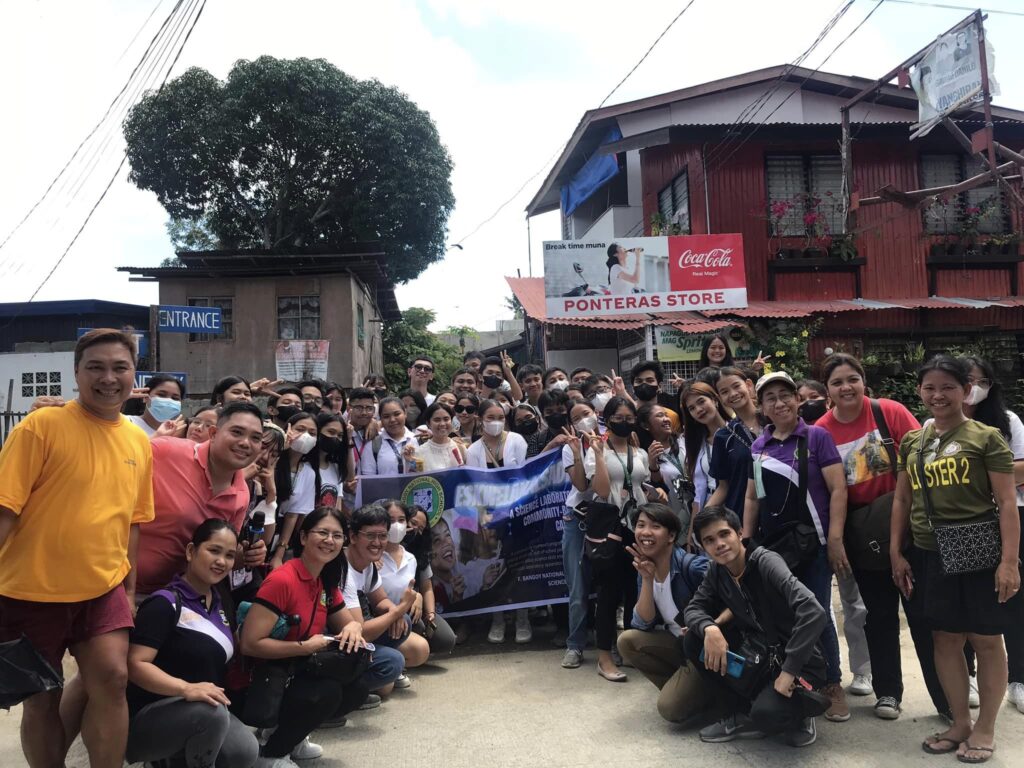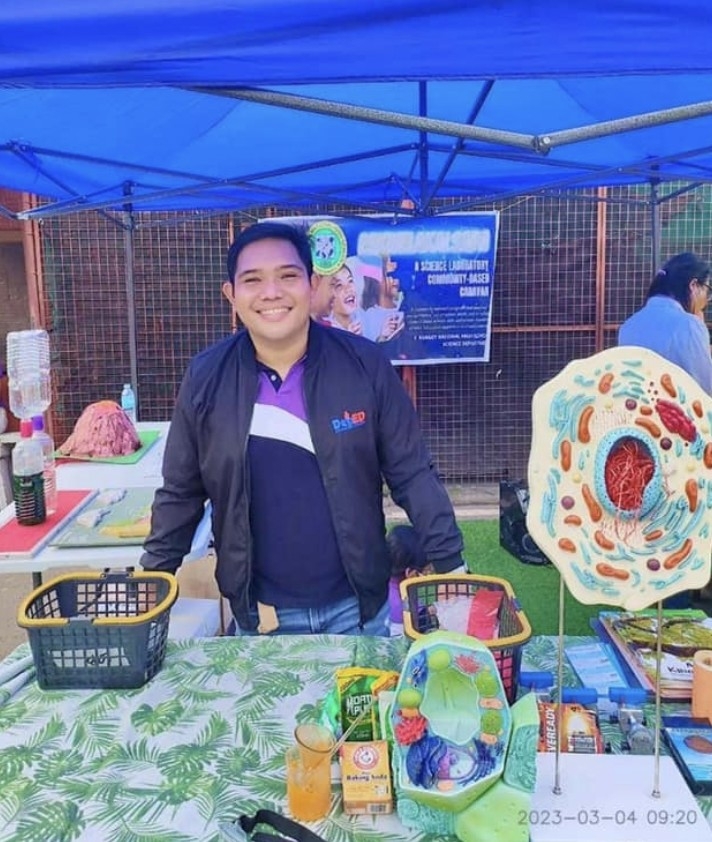By Henrylito D. Tacio

“The saddest aspect of life right now is that science gathers knowledge faster than society gathers wisdom.” ― Isaac Asimov
***
“Science is a wonderful, science is important, and so are children, so are young people, and so what could be better than to write a science book for young people?” said Richard Dawkins.
The Britannica Encyclopedia defines science as “any system of knowledge that is concerned with the physical world and its phenomena and that entails unbiased observations and systematic experimentation.”
In general, a science involves a pursuit of knowledge covering general truths or the operations of fundamental laws.
But teaching science to people, particularly students and pupils, is easier said than done. You have something to prove it. Seeing is believing, so goes the saying. They won’t believe until they have seen something that really works.
If teaching science to students and pupils is hard, how much more for those who are not in school?
It was found during the Program for International Students Assessments (PISA) in 2022 that Filipino learners were “low performers” and the country was ranked 80th in science and technology.
Because of this findings, Dr. Rogar R. Garcia together with his co-teachers from Francisco Bangoy National High School in Davao City launched SkwelaKalsada: A Community-Based Science Laboratory Caravan last year.
“(We aim) to promote science and technology and scientific literacy to all learners, parents, and even out-of-school youths,” explained Dr. Garcia, who is Master Teacher II in the said school. “The program’s initial demonstrators and volunteers were the co-teachers and some volunteer alumni students who collaborated with me in bringing this innovative initiative to life.”
The idea came when he observed that laboratory materials and equipment were primarily and exclusively utilized only by the students at the school, often leaving them underutilized. He admitted that he was inspired by Mr. Efren Penaflorida’s initiative in bringing education to underprivileged children through his pushcart classrooms promoting reading literacy. He wanted a similar approach but focused on science and technology.
The initiative is conducted quarterly and happens every Saturday. Among the actors are science teachers, student volunteers, and alumni who are all immersed into the community. The initiative is done in collaboration with Barangay Sasa officials and with the unwavering support of Kagawad Mark B. Bangalao, and SK Kagawad Rafael R. Beloy. Also supporting it are Peppertech Philippines, TheBau Haus, and some committed individuals like City Councilors Al Ryan Alejandre and Javi Garcia and Congressman Vincent Garcia.
SkwelaKalsada was piloted at Parola Community at barangay Sasa in Kilometer 10 last October 2023. This is what transpires during the program: Teachers conduct engaging and fun demonstrations of science lessons from Grade 7 to 10. Each grade level is represented by a dedicated teacher who tailors their presentation that is easy to comprehend for all ages, including parents and out-of-school youths.
“These interactive demonstrations are followed by hands-on activities, allowing the community to actively engage with the demonstrated scientific concepts, skills, and techniques,” Dr. Garcia said in an interview.
According to Dr. Garcia, SkwelaKalsada transcends the boundaries of a traditional school, fostering a sense of community, family, and shared dreams. It envisions a world where science is not merely an academic pursuit but a tangible experience to be embraced and celebrated.
“The program pulsates with the collective spirit of participating parents, children, and youth, inspiring a lifelong love of learning and igniting their curiosity,” he explained. “(It) reminds us that learning can be both fun and engaging, regardless of grades or assessments.”
Dr. Garcia explained that SkwelaKalsada employs a well-structured approach, beginning with introductory demonstrations. “These demonstrations equip the community with understanding of the scientific concepts they will soon apply through interactive and hands-on activities,” he said. “This sequencing ensures participants have the necessary knowledge to effectively utilize the equipment and materials.”
Interestingly, the community’s response to SkwelaKalsada has been overwhelmingly positive. Learners actively participated, demonstration a shift from their usual weekend activities. Instead of playing mobile games or engaging in unproductive activities, they embraced the opportunity to learn and engage with science.
Rosie, a mother, commented, “Dako kayo ang tabang na gibuhat sa mga maestra nga matudloan ang mga bata sa science. Ug kaming mga ginikanan, nalingaw pud ug gamit sa mga science laboratory apparatus nga first time pa namo nagamit.”
“The program fostered a sense of gratitude within the community,” Dr. Garcia reported. “Parents expressed appreciation for the positive influence on their children, witnessing increased enthusiasm for learning science, a spark of curiosity, and an inspiration to attend school regularly. This newfound enjoyment of learning has contributed to a reduction in dropout rates within our school’s jurisdiction.”
Such laudable program went unnoticed. In fact, the Davao City Division recognized the potential of SkwelaKalsada so much so that it issued a memorandum inviting all elementary and secondary schools to implement similar programs within their respective barangays.
“This initiative ensures that science education extends beyond our immediate community, empowering teachers to share their knowledge more widely,” said Reynante Solitario, Schools Division Superintendent.
Aside from Dr. Garcia, those who are involved with SkwelaKalsada are Faye Genevieve Pasamonte, Education Program Supervisor in Science and Technology of Davao City Division, and Solitario.
Allan O. Logarta, principal, and Dr. Joan B. Galarion, public secondary district supervisor, also supports the program. – ###
(Photos courtesy of Dr. Rogar R. Garcia)




